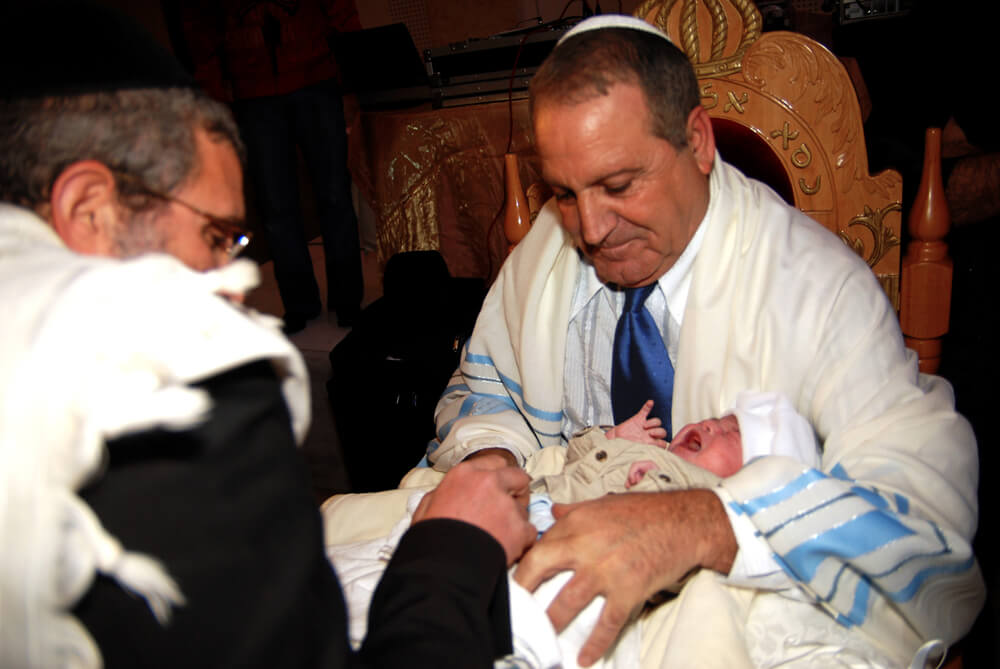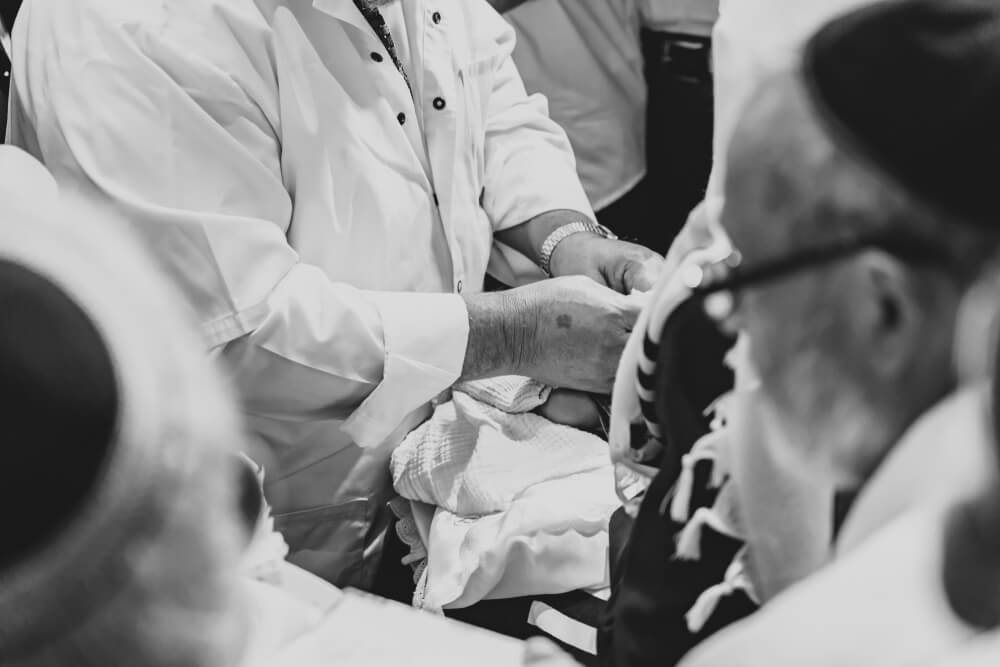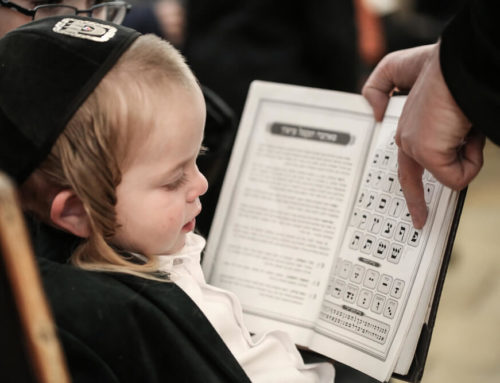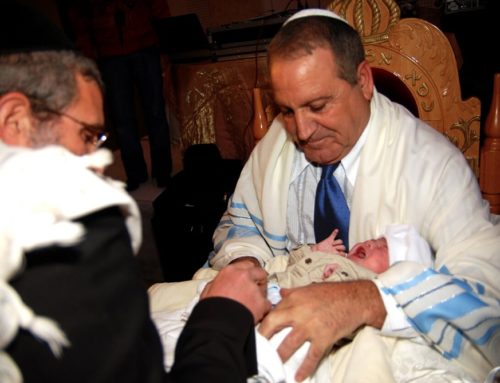In the Jewish religion, one of the first rites of passage for baby boys occurs on the eighth day of their lives, during a special ceremony called brit milah. Unlike other milestones in a boy’s life, this is the very first religious act that will be a physical reminder of his faith and relationship with God for the rest of his life. During a bris, the baby boy enters a physical covenant with God through the removal of the foreskin from the penis during the ceremonial ritual. Brit milah translates to “covenant of circumcision,” and this initiation rite has been performed for more than 3,000 years in the Jewish religion. When you and your spouse learn that you will be having a baby boy, one of the most important aspects that needs to be planned, after a safe and healthy birth, is picking a mohel to perform this exceptionally important ceremony for your newborn child.
Brief History of Brit Milah

Dating back to the days of Abraham, the biblical patriarch, God had commanded that Abraham, all of the male members of Abraham’s household and every descendant to follow, shall be circumcised to enter into the everlasting covenant. The physical act serves as a sign for all male Jews to remember that they are part of the community of God. Over the thousands of years, the ritual has changed in many ways, but the core purpose has remained the same. During the ceremony, the baby’s foreskin is removed with a scalpel by a trained mohel, rabbi, or doctor. Along with the medical procedure, there are several traditions and blessings that are to be followed throughout the ceremony.
The reason that the brit milah must be held on the eighth day of the newborn’s life is so that the baby will experience one Shabbat before entering into the holy covenant. Even if the eighth day of life falls on the Shabbat, the ceremony is of the utmost importance that the brit milah can be permitted in order to follow the scripture’s command of circumcision. By guaranteeing one Shabbat, the baby’s soul will be healed, which has just been brought into the physical world. Also, by waiting until the eighth day, this allows the baby to be strong and healthy enough to undergo the procedure of circumcision.
In the Bible, the baby’s father was traditionally supposed to perform the circumcision, but over time, this tradition has changed. Most fathers are not comfortable nor appropriately trained to perform this act, which is why they designated a mohel to fill this role.
How to Become a Mohel
Some rabbis or physicians choose to become mohalim as another way to be involved in a young family’s life. Being able to partake in such a beautiful and meaningful ceremony with a family that is celebrating the birth of a newborn baby boy is truly remarkable. Others feel a religious duty to help bring more members of the faith to God through this eternal covenant. Whatever the motivating reason may be, to become a mohel, one needs to be formally trained in two distinct areas: religiously and surgically.
Mohel training from a religious standpoint includes being formally educated on the Halacha, which are the Jewish laws that govern the act of circumcision. Also, being able to perform a beautiful ceremony for the family is taught because their happiness is almost as important as the religious significance of the ceremony. From a surgical training standpoint, it is absolutely imperative that the mohel is precisely trained on proper technique and safety precautions that are crucial for carrying out a quick, safe and painless circumcision. There are specific training and mohel certification programs available like the one through the National Organization of American Mohalim that require extensive applications for those looking to become certified.
Finding the Right Mohel

While there has been a decline nationwide, in the percentage of newborn baby boys that are being circumcised, the need for a younger generation of mohalim is still present. There has been a cultural shift away from the hospital circumcisions for non-Jews as more and more parents are deciding to choose a mohel over a medical doctor to perform the circumcision in order to include a religious or spiritual component. Even if the family is not Jewish, many molahim will still perform the procedure and tailor the ceremony to meet the wants and needs of the family.
While a large percentage of mohalim are doctors, they can be rabbis or even devout Jews of the community that have received both medical and religious training. There are a few things to look for and ask when deciding on the right mohel to perform your son’s circumcision that include:
- Does the mohel’s practice of Judaism reflect your own or do you want the strictest adherence to tradition as possible? This is an important self-reflection question because finding a mohel that matches with your expectations is going to help create a perfectly memorable ceremony.
- What is their background and training? This may seem obvious, but the skills necessary to perform a circumcision are developed with practice and while every mohel has to perform their ceremony at some point, you are probably going to want someone with a great resume and lots of experience. Ask around your community for recommendations because word of mouth is the best source of review.
- Pain management for the baby? Does the mohel use a method to reduce the pain for the baby or to help calm them? Common methods include sugar water solution, wine, or even topical anesthetic creams.
- What do they charge for their services? Willing to travel? There is no uniform price and each mohel will have a different charging structure for their services. Travel is also a big component of choosing the right mohel because some stay rather close to home or only perform a brit milah in a synagogue.
- Do they have a reference you can call? Just like asking a friend or community member for a recommendation, a reference call can really help you find out if you are making the right decision.
- Have a secondary recommendation? Even if you find the mohel you would like to book since you cannot give more than eight days of notice, you should have a backup mohel lined up. Even asking your first choice if they have someone that they would recommend if they are unable to make it can be very helpful.
If you are looking for a religiuos mohel in South Florida, Dr. Andrew Krinsky is one of the very best. For more than 20 years, he has been religiously ordained and certified as a mohel and has nothing but an exceptional track record of happy families. As a Board-Certified M.D. and surgeon, Dr. Krinsky’s medical resume provides a level of comfort for families by knowing that their son is in the hands of a very skilled and experienced medical professional. Aside from his outstanding medical qualifications, Dr. Krinsky will provide a beautiful and memorable ceremony for you and your son, whether at your home, synagogue or other location that you choose. MDs like Dr. Krinsky are also surgically trained through approved residencies. They can go above and beyond to make everything comfortable. Only MDs can use an anesthetic for the procedure, and SOMETIMES, using an MD the surgical procedure might be covered by your health insurance! Visit our website today!





